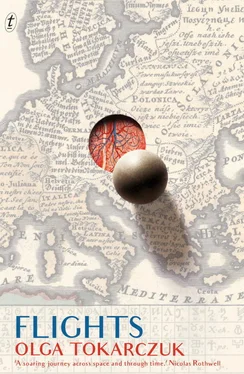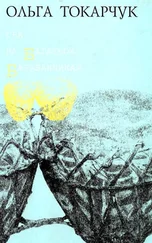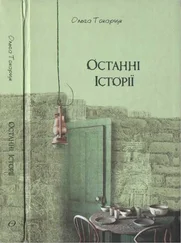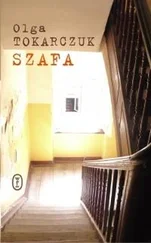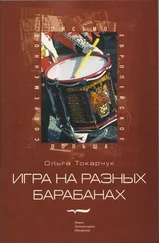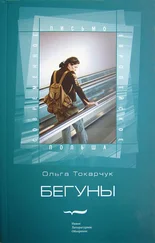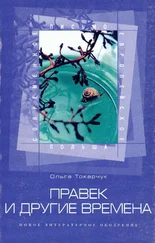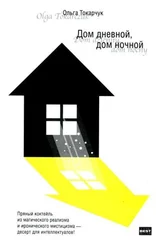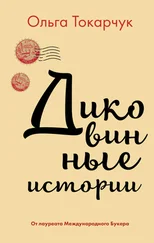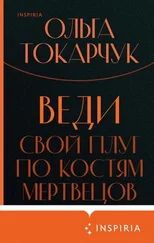Then they moved to armchairs, she brought half a bottle of port from the kitchen and poured out two glasses.
He asked: ‘Will I get to see the lab?’
She didn’t answer right away. Perhaps because she had port in her mouth, as she had had the chocolate before. Finally she said: ‘It’s a ways from here.’
She got up and started clearing the table.
‘You can barely keep your eyes open,’ she said.
He helped her put the plates into the dishwasher, and then with relief he went upstairs, muttering an indistinct ‘good night’ over his shoulder. He sat on the edge of his made bed and then immediately lay down on his side, not having the strength to take off his clothing. He heard her calling the cat on the terrace.
The next morning he did everything very methodically: he took a long shower, folded up his dirty underwear into a cube and put it inside a bag, unpacked his things and laid them out on a shelf, hanging up his shirts. He shaved, moisturized his face, rubbed his favourite deodorant under his arms, reinforced his greying hair with a little gel. His only hesitation was whether to wear sandals, but he thought it would be better if he continued with his laced-up loafers. Then, in silence (though he wasn’t sure why) he went downstairs. She must have gotten up before him, because on the kitchen counter a toaster was out, and a few crumbs from the bread for toast. As well as a jar of marmalade, a bowl of honey and butter. His breakfast. There was coffee in the French press. He ate some toast standing out on the terrace, looking at the sea, supposing she must have gone to swim again, so she would undoubtedly come from out there. He wanted to see her first, before she saw him. He was the one who kept an eye on others.
He wondered whether she would agree to take him to the lab. He was very curious. Even if she told him nothing about what was in there, he’d be able to figure out quite a bit from what he’d see.
Mole’s techniques were a mystery. Blau had come up with a few theories, of course, and might even have been close to solving it. He had seen his specimens in Mainz and then at the University of Florence on the occasion of the International Conference on Tissue Preservation. He could guess how Mole conserved bodies, but he didn’t know the chemical make-up of the fixatives, wasn’t sure how you operated on the tissues with them. Whether you needed to prepare them somehow, give them a pre-treatment. When and how were the chemicals dispensed, what was used in place of the blood?
How were the internal tissues plastinated?
However Mole did it (and his wife – of her involvement Blau was more and more certain), his specimens were excellent. The tissues kept their natural colour and a certain plasticity. They were soft, but also sufficiently stiff to lend the body the appropriate shape. In addition they were easy to separate, which had an unlikely pedagogical result – you could take them apart and put them back together. Endless possibilities in terms of travels within the body of the preserved organism. From the perspective of the history of conservation of the body, Mole’s discovery was revolutionary, it had no equal. Von Hagens’ plastination had been the first step in this direction, but at this point it seemed less relevant.
Again she came out in a towel, this time a pink one, and she was coming not from the sea, but from the bathroom. She shook her wet hair and stood in the kitchen, at the stove, where she was heating milk up for coffee in a metal mug. She moved the netted plunger up and down, slowly, until the milky foam poured out onto the heated ceramic surface with a hiss.
‘How did you sleep, doctor? Coffee?’
Oh, yes, coffee. He accepted his mug gratefully and let her add some foamy milk to it. He listened with feigned interest to her story about the orange cat, who one day, the day their previous orange cat had died, had come to their house – who knew where from – and sat down on the sofa as though he’d always lived here, and then stayed. So they had barely even noticed the difference.
‘That’s the strength of life,’ she sighed. ‘As soon as one person departs another being fills the void.’
Poor Blau – he would have preferred to get right to the matter at hand. He had never been good at small talk, he was bored by topics pronounced for the sake of maintaining a soothing social hum. He simply wanted to finish his coffee and get into the library, and to see where Mole had worked and what he’d read. Did he have Blau’s History of Conservation on his shelves? What routes had taken him to his remarkable discoveries?
‘It’s interesting that he, like you, started out by researching Ruysch’s work.’
Blau knew this, obviously, but he didn’t want to interrupt her.
‘In his first published article he demonstrated that Ruysch was trying to conserve whole bodies, by eliminating their natural fluids, if only that had been possible in those days, and replacing them with a mixture of liquid wax, talcum and animal tallow. Then bodies, prepared in this way, just like specimens of parts, would be immersed in a “Stygian water”. It seems the idea never came to fruition because of a lack of glass vessels that would be big enough.’
She gave him a hurried glance.
‘I’ll show you that research,’ she said and moved briskly to wrestle with the sliding door because of the coffee she held in her hand. He helped her, while she held his mug.
Behind the door was the library – a beautiful spacious room lined with bookshelves from floor to ceiling. With perfect aim she reached out to one of them and took down a moderately sized bound booklet. Blau leafed through it, giving her to understand that he already knew this text well. In any case, he had never been particularly interested in techniques involving liquids – that was a dead end. The example of the English man, William Berkeley, the fleet admiral Ruysch had embalmed with liquid interested him only insofar as it concerned the problem of rigor mortis. For this was the mystery of the marvellous appearance of that body, described with such delight by his contemporaries. Ruysch had managed to give him a very relaxed aspect, even though he had received the body he was to treat several days after its death, completely stiffened. Apparently he had hired special servants to massage the body patiently, and in so doing, to overcome its rigor mortis.
But something else entirely grabbed his attention. He handed her back the booklet without moving his gaze away from it.
By the window there was a big desk, and on the other side of it some glass display cabinets. Specimens! Blau was unable to control his excitement and found himself standing before them without realizing he’d reached them. She seemed annoyed he hadn’t given her time for a slow, museum-like preparation for what he was about to see. He’d got away from her.
‘This you might not be so familiar with,’ she said, somewhat grumpily, pointing to the orange cat. It was looking at them peacefully, sitting in a position that suggested an acceptance of existence in this form. The other, live cat followed them into the room now and, as though looking at its reflection in a mirror, gazed at its predecessor.
‘Touch him, pick it up,’ the woman in the pink towel encouraged the doctor.
His fingers trembling, he opened the display case and touched the specimen. It was cold, but not hard. Its coat gave a little bit under Blau’s fingertip. Blau picked it up carefully, holding its chest in one hand and its stomach in the other, as you pick up live cats – and it felt very odd indeed. Because the cat had the same weight as a live cat, and like a live cat, its body reacted to the doctor’s grasp. The impression was almost impossible to believe. He looked at her with an expression on his face that made her laugh, and again she shook her drying hair.
Читать дальше
